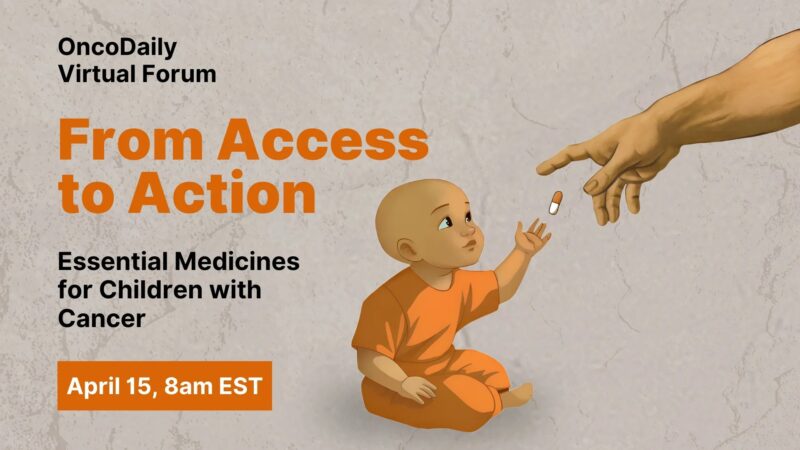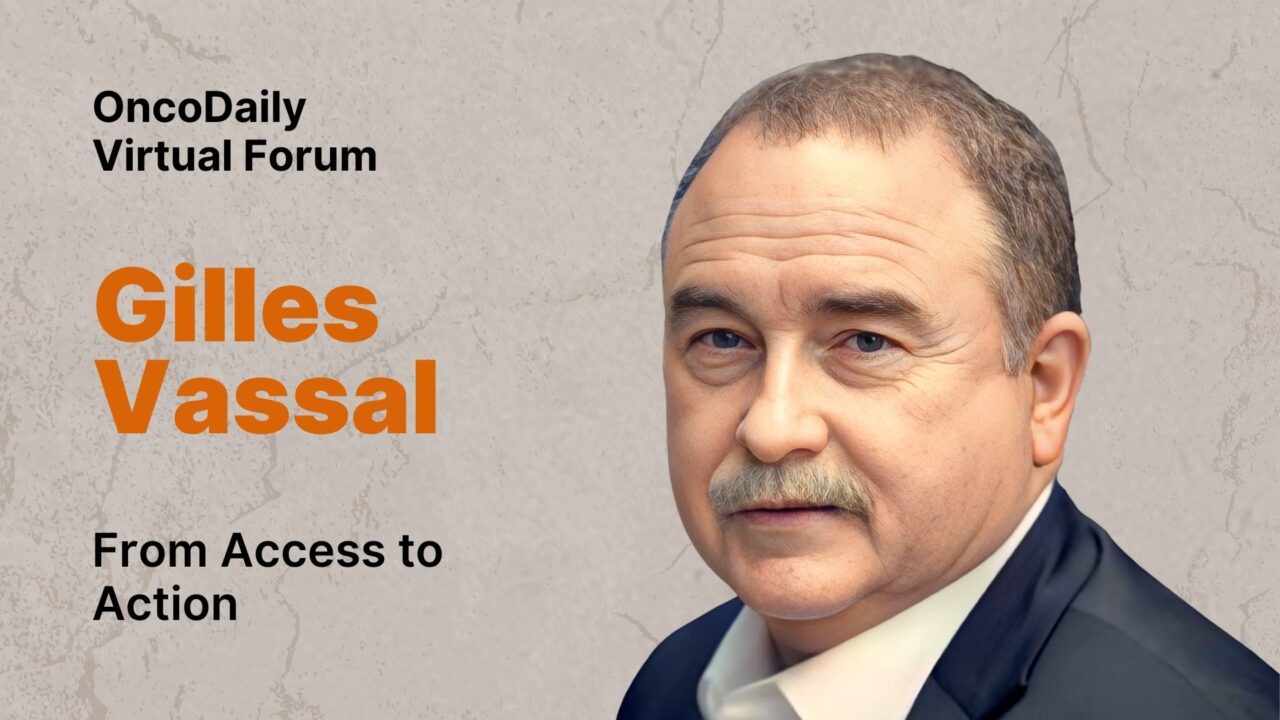Speaking at “The Essential Medicines for Children with Cancer: From Access to Action”, a virtual event hosted by OncoDaily, Prof. Gilles Vassal made the case for Temozolomide’s inclusion in the WHO Essential Medicines List for Children.
As Head of Pediatric Research at Gustave Roussy, he highlighted its critical role in treating aggressive brain tumors and urged global harmonization in pediatric cancer drug approvals.
Highlights from his session:
Professor Gilles Vassal delivered a compelling presentation on the need to update the WHO Essential Medicines List (EML) to better reflect the realities of pediatric oncology care around the world.
As a global leader in childhood cancer research and policy, Prof. Vassal emphasized the role of the EML in guiding countries – particularly low- and middle-income nations – in the development of national policies and procurement strategies for life-saving cancer treatments.
At the center of his talk was the proposal to include temozolomide, a widely used chemotherapeutic agent, on the WHO EML for children. Temozolomide is a well-established treatment for high-grade gliomas and is also used in relapse settings for diseases such as neuroblastoma.
Although it has been approved for use in adults for over two decades and is incorporated into pediatric treatment protocols globally, it has yet to be recognized on the WHO’s list of essential medicines for children.
Vassal explained that this omission poses significant challenges to access, especially in resource-limited settings where official inclusion on the EML can be a critical step toward availability, affordability, and prioritization within national health systems.
He argued that the current evidence base, supported by expert consensus and widespread clinical use, justifies the addition of temozolomide. The drug is available in generic formulations, has manageable side effects, and is often used in oral regimens that reduce the burden on hospital systems and families.
“Temozolomide is not a new drug. It’s widely used, clinically effective, and already part of standard protocols for children in many countries. Its absence from the WHO EML is a gap we must urgently close if we are serious about equity in childhood cancer care.”
Adding temozolomide to the pediatric EML, he noted, would help streamline procurement and support ministries of health, clinicians, and NGOs in improving access to quality-assured medicines. It would also underscore the need for timely, evidence-based updates to the EML that reflect both evolving science and real-world treatment patterns.
Importantly, Vassal acknowledged that while temozolomide is not curative in most settings, it provides valuable clinical benefit in prolonging life and improving quality of life for children with relapsed or refractory disease – benefits that are particularly meaningful in contexts where treatment options are limited.
His call to action was clear: the EML must evolve in step with modern pediatric cancer care. He praised the work of the SIOP Essential Medicines Working Group, which continues to advocate for access to medicines that are both evidence-based and feasible for implementation across a variety of healthcare systems.
In closing, Prof. Vassal reminded the audience that access to essential medicines is not only a clinical issue but a matter of health equity. Ensuring that children everywhere have access to effective cancer treatments, including temozolomide, is a shared global responsibility – and one that can be advanced by thoughtful, coordinated action starting with the WHO EML.
“The EML isn’t just a list – it’s a statement of what every child, everywhere, should have access to. When we update it to reflect modern, effective treatments like temozolomide, we take a step closer to curing more children and closing the gap in global cancer care.”
About the Forum
The Essential Medicines for Children with Cancer: From Access to Action by OncoDaily focuses on the WHO Essential Medicines List for Children, the new applications including Blinatumomab and Temozolomide, the challenges different low- and middle-income countries (LMICs) are facing with the access to medications and the role of initiatives such as ACT4Children and the Global Platform for Access to Childhood Cancer Medicines (GPACCM).

Missed the live session? Catch the full forum recording on our YouTube channel.


